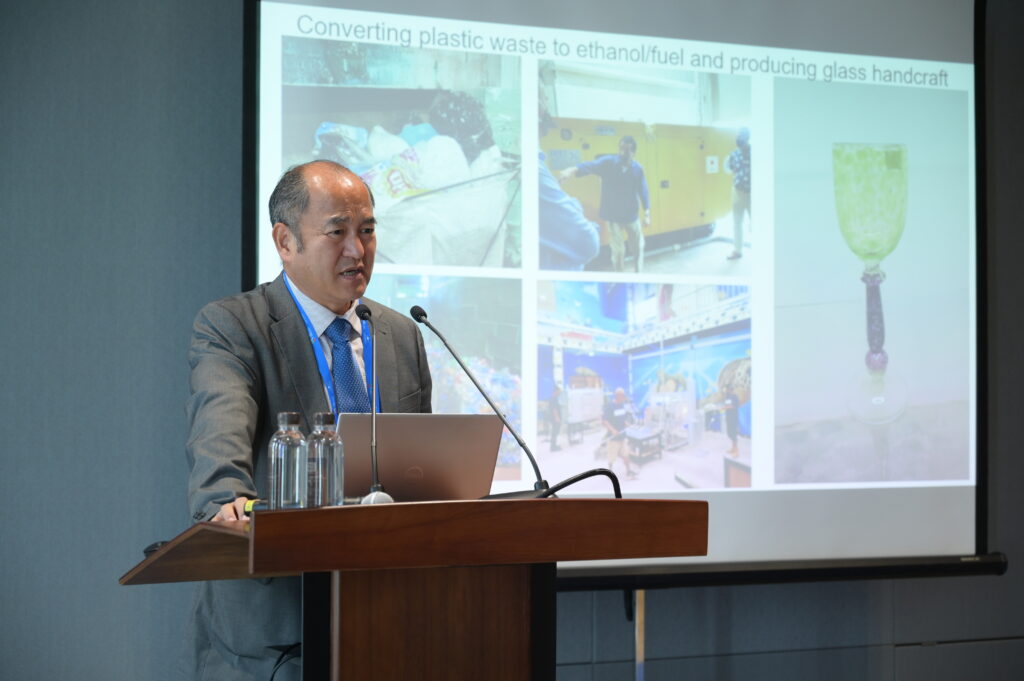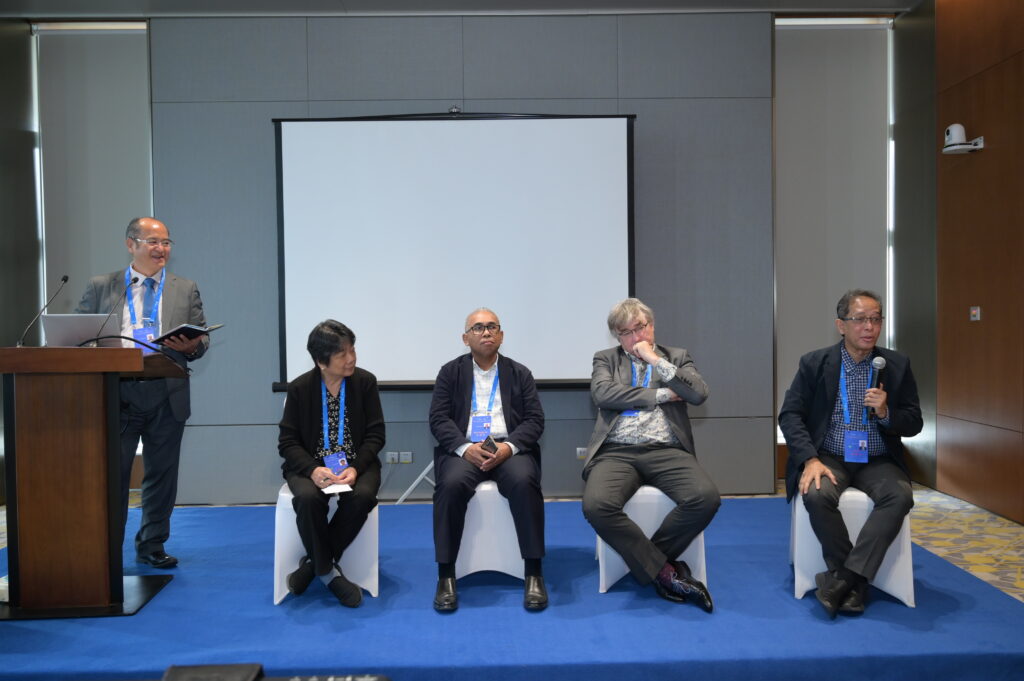ST 4.3

“Coral farming and transplantation, collecting discarded oyster shells and creating artificial reefs to boost fish biomass and plastic waste conversion are but some of the many ways to revitalize our oceans,” shared Masanori Kobayashi, Program Director of the Sasakawa Peace Foundation, during the Leadership Session for Blue Economies, held on 7 November at the EAS Congress in Xiamen.
Presenters examined various start-up businesses that addressed coastal and marine resource management to find out what kind of knowledge and skills are needed to initiate, facilitate and effectively manage start-up businesses in line with the global vision for blue economies.
The need to consolidate knowledge of not only oceanographic, biological and ecological aspects – but also policies, laws, finance, management and other social science related disciplines was reiterated by various presenters. A number of countries have been looking into the schemes to support start-ups to support micro, small and medium enterprises (MSME). However, such schemes have not targeted business opportunities in coastal and marine resource management.
Moderated by Masanori Kobayashi, Program Director for the Sasakawa Peace Foundation and Dr. Sheila Vergara, Project Manager for the ASEAN Center for Biodiversity, this session saw jam-packed presentations by Dr. Augy Syahailatua, Research Professor in Biological Oceanography and Fishery Science, Research Centre for Oceanography, National Research and Innovation Agency (BRIN), Indonesia, Prof. Luky Adrianto, Chairperson, International Research Institute for Maritime, Ocean and Fisheries, IPB University / Sustainability Adviser, ARUNA, plus Prof. Icarus Allen, Chief Executive, Plymouth Marine Laboratory and PML Applications.
“A truly ‘Blue Economy’ is inclusive and integrated,” explained Prof. Luky Adrianto. “The implementation of sustainability principles must be ensured for the sustainable use of all aquatic ecosystem services, including freshwater and the oceans.”
As the session touched heavily on blue carbon principles, it was in line with Action 6 of the Xiamen Ministerial declaration by promoting the potential of the blue carbon market and non-market benefits supported by a regional certification scheme based on PEMSEA’s ‘Blue Carbon’ roadmap.
Prof. Icarus Allen capped off the session by redefining what leadership should be. “We need to develop a new strategy in looking for solutions, especially in addressing challenges faced by the blue economy. Leadership is not only looking at the successes. It is also done by learning from our failures as well.”

Mr. Masanori Kobayashi, Program Director for the Sasakawa Peace Foundation, moderates the panelists, who shared their respective views about Blue Economy development, leadership and conservation. (PRF)
